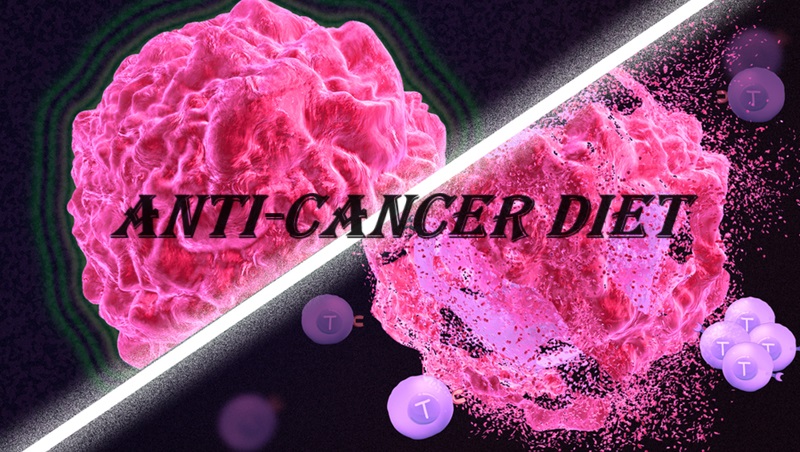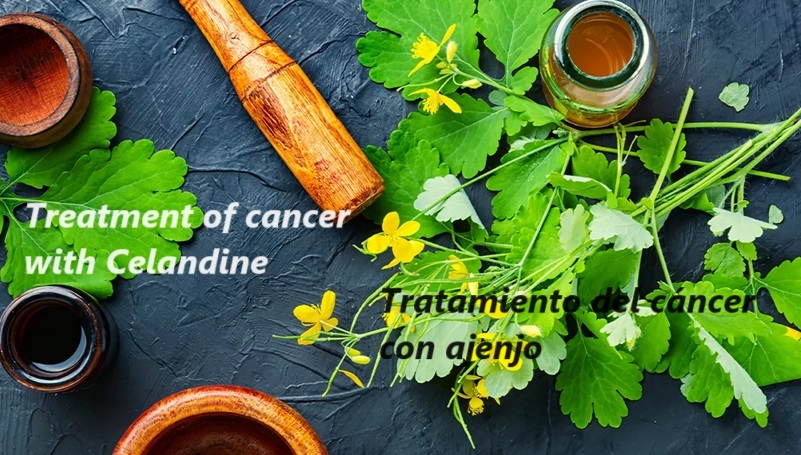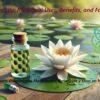Under the term “NUC” hides a very dangerous disease of the gastrointestinal tract (GIT), named as non-specific ulcerative colitis. It is accompanied by intestinal bleeding, abdominal pain, fever, and weight loss. If the treatment of NUC is not started in a timely manner, the disease becomes chronic, which is difficult to cure.
Therefore, after imaginary improvement, exacerbation often occurs. Severe forms of the disease can cause complications such as ruptures of the intestinal walls and colorectal cancer. In such life-threatening complications, surgical intervention is indicated. Since drug treatment of the disease brings only minor results, treatment of NUC with folk remedies is literally considered the only type of therapy that produces results.
Causes of non-specific ulcerative colitis
Unfortunately, the causes leading to this disease are still unknown. However, experts identify several factors that can cause NUC:
Genetic predisposition,
Previous infections,
Immune system imbalance,
Nervous-psychological characteristics and emotional instability,
Diseases of the gastrointestinal tract,
Poor environmental conditions.
The disease begins with damage to the rectum and spreads throughout the healthy area of the colon, affecting the submucosal and mucous layers, and the inner surface of the colon is covered with wounds of various sizes.
The rapid spread of the disease and its severe course are facilitated by nervous disorders, so treatment is aimed at restoring psychological balance.
Forms and stages of NUC
The severity of the disease indicates which treatment the patient needs. But all its types are aimed at restoring the mucous and submucous membranes of the colon and rectum.
Therefore, in the treatment of NUC with folk remedies, herbs with enveloping and wound-healing properties are chosen.
Stages of non-specific ulcerative colitis
Depending on the course of the disease, NUC can be divided into stages:
Chronic. The disease becomes chronic if treatment is not started on time.
Acute. The appearance of the first signs and symptoms of the disease.
Recurrent. Exacerbation occurs after an imaginary improvement.
Forms of non-specific ulcerative colitis
Depending on the severity of the disease, it can be divided into forms:
Mild.
Moderate.
Severe.
With a mild form, the patient’s condition is satisfactory, loose stools occur no more than 5 times a day, possibly with a slight admixture of blood. Severe forms accompanied by fever, loose stools up to 8 times a day with the addition of blood, pus, and mucus. Severe forms of the disease are treated exclusively in hospitals.
Treatment of non-specific ulcerative colitis with folk methods
To alleviate the course of the disease and cope with it further, properly selected phytotherapy helps, i.e., treatment of NUC with herbs.
Phytotherapy sometimes remains the only way of treatment when medicinal drugs prove to be powerless against the disease, and surgical intervention is still premature.
Relevant medicinal herbs
Herbal infusions should have a gentle effect, enveloping the damaged areas of the colon and rectum, promoting wound healing, and stopping bleeding.
Therefore, herbs used for the treatment of NUC should possess all these properties. Moreover, herbal infusions replenish fluid loss and restore the body’s water-salt balance. For the treatment of NUC with folk remedies, time-tested herbs and other plant components are used:
Raspberry, strawberry, black currant leaves: help the liver fight the disease.
Dried blueberries: cleanse the intestines from putrefactive substances and help fight cancer cells.
Nettle: improves blood clotting, reduces inflammation, cleanses the intestines from decay products.
Peppermint: helps cope with emotional instability, diarrhea, reduces inflammation and spasms, has antibacterial properties.
Chamomile: has powerful antimicrobial and antibacterial effects, relieves spasms.
Wormwood: has bactericidal properties that cleanse the intestines of harmful microorganisms, stops diarrhea.
Agrimony: has wound-healing properties, reduces inflammation, relieves pain, copes with constipation.
Plantain: heals wounds, stops diarrhea.
Pomegranate peel: infusions stop diarrhea, combat pathogenic microorganisms, reduce inflammation.
Tansy: copes with nervous tension, fights harmful microorganisms, reduces inflammation, helps heal wounds.
Mugwort: cleanses the intestines from harmful microorganisms.
St. John’s wort: restores intestinal motility, has anti-inflammatory properties, fights purulent impurities in feces.
Bird cherry: heals wounds, relieves spasms and inflammation.
Birch: has astringent and wound-healing properties, stops intestinal bleeding.
Medicinal infusions are prepared from these herbs. They can be combined into collections, as well as brewed separately. To prepare collections, it is enough to take each of the necessary herbs in equal proportions. To enhance a specific effect, it is necessary to increase the portion of the required herb. Glycerin can be added to the decoction.
Treatment of chronic stage of NUC
Chronic non-specific ulcerative colitis can be accompanied by both diarrhea and constipation. Therefore, the treatment of NUC with folk remedies should take into account these features:
Treatment of colitis accompanied by diarrhea. Herbal collections must necessarily include herbs with astringent properties, for example, agrimony. Take chamomile and agrimony herbs in a ratio of 5:1, add equal parts of nettle, plantain, and rosehip. This herbal collection, the infusion of which will have an increased antibacterial effect, stop diarrhea, cope with decay, and stop bleeding. Brew in a ratio of 1 tablespoon of collection per glass of water. The infusion should be put in a water bath and then let it infuse for several hours (you can leave it overnight in a thermos). Drink one glass before meals.
Treatment of colitis accompanied by constipation. Herbal collections with laxative herbs, such as bird cherry, will help restore motility. Take in equal parts chamomile, bird cherry, nettle, mint, valerian root, and blueberry fruits. Pour three tablespoons of the collection into a thermos and pour three cups of boiling water, leave overnight. Drink one glass before meals.
Treatment of acute stage of NUC
Green tea brewed strong can help treat the acute stage as it has a strong antimicrobial effect. But packaged tea will not work; you need to buy loose leaf tea.
Chamomile also plays an important role in treating acute colitis. The infusion from it should also be strong: take 4 tablespoons per cup of water. Heat the infusion in a water bath for about 20 minutes, then strain. Take half a cup after meals.
St. John’s wort can stop diarrhea during an acute attack of colitis. Take one tablespoon of herb per glass of water. Let it infuse for half an hour and take one-third of a cup three times a day before meals.
Treatment of relapses
During this time, it is necessary to take collections that improve blood circulation and promote rapid healing of ulcers.
Also, the infusions should include herbs that improve blood clotting: St. John’s wort, nettle, dead nettle, cayenne pepper. These herbs are recommended to be added to other medicinal collections.
In all cases, treatment of NUC with folk remedies is very effective with enemas with sea buckthorn oil. It promotes cell regeneration and rapid healing of wounds and ulcers. Take 50 ml of oil in a small pear and insert it into the rectum in a lying position. Sea buckthorn enemas are recommended to be done at night. In the morning, it is necessary to take 1-2 tablespoons of oil orally on an empty stomach.
NUC and Homeopathy
Although homeopathic methods are not new methods of treatment, sooner or later there is a desire to entrust oneself to a homeopathic doctor. In such a case, it is necessary to choose an experienced, verified, and qualified doctor.
Treatment of NUC with homeopathy depends on the individual characteristics of the patient, so a lot of time, up to several hours, is spent only on a conversation with a homeopathic doctor. Based on the described symptoms and other characteristics, the doctor will select individual treatment, which may start from conventional phytotherapy and end with massage or acupuncture.
The effect of Bolotov-Naumov
Those who try to cope with the disease have probably heard of Dr. Naumov and the Bolotov-Naumov effect. Research has led to the conclusion that the cause of non-specific ulcerative colitis is the improper functioning of the muscular valve – the pylorus, which separates the stomach cavity from the duodenum.
With low contractile ability, it remains open for a long time, as a result of which two environments (stomach and intestines) mix, leading to various gastrointestinal diseases.
The contractile ability of the valve is disrupted due to frequent consumption of alkaline foods. Recommendations from Dr. Naumov help restore pyloric function:
30 minutes after eating, suck ordinary salt, preferably in large quantities.
For chronic disease, it is recommended to prepare mash from vegetables.
Introduce into the diet in small portions: meat, mushrooms, fish, cheese, kefir, pickled vegetables.
Drink an infusion of wormwood 1.5 hours after meals.
Prepare a tansy kvass with whey and drink it by the spoonful every two hours.
With the right approach, treatment of NUC according to Naumov brings tangible results. When consuming acidic foods, the tone of the pylorus increases, which is called the Bolotov-Naumov effect.
Non-specific ulcerative colitis is a very dangerous disease that cannot be left untreated and hoped to pass on its own. About 10% of cases of the disease have a fatal outcome. Therefore, regular treatment will help alleviate the disease and serve as prevention of serious complications.






